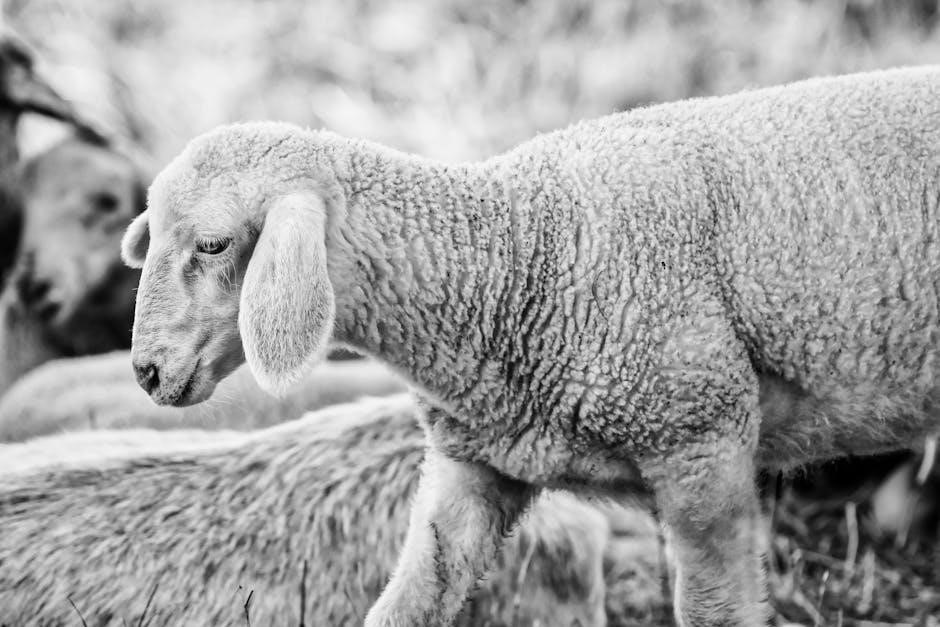
animal farm summary pdf
Animal Farm is a timeless allegorical novel by George Orwell, exploring themes of rebellion, totalitarianism, and corruption. Its availability in PDF format allows readers to easily access and analyze the story, which serves as a powerful critique of political systems. The novel’s enduring popularity stems from its universal themes and relatable characters, making it a cornerstone of literary study and discussion.
1.1 Overview of the Novel
Animal Farm is a satirical fable by George Orwell, recounting the story of farm animals rebelling against their oppressive owner, Mr. Jones. The novel follows their struggle for freedom and self-governance, exploring themes of power, corruption, and the dangers of totalitarianism; As an allegory of the Russian Revolution, it vividly portrays how ideals of equality and justice can be distorted. The story remains a timeless critique of political systems, offering insights into human nature and societal structures.
1.2 Author and Publication Details
Animal Farm was written by George Orwell, a renowned English novelist, essayist, and critic. Born on June 25, 1903, and passing on January 21, 1950, Orwell is best known for his dystopian works. Animal Farm was first published on August 17, 1945, in England. The novella, an allegory of the Russian Revolution, received widespread acclaim for its political satire and profound insights into power dynamics. Its availability in PDF format has made it easily accessible to readers worldwide, ensuring its enduring relevance and popularity.
1.3 Significance of the Title
The title Animal Farm reflects the setting and central theme of the novel, highlighting the collective effort of the animals to create a utopian society. It symbolizes the idea of equality and self-governance among the animals, contrasting with the oppressive human regime they sought to overthrow. The title’s simplicity belies the deep political and social commentary within, making it a powerful and enduring symbol of rebellion and the quest for freedom. Its availability in PDF format ensures this timeless story reaches a global audience, preserving its significance for future generations.

Setting of the Story
The story unfolds on Manor Farm, a rural English farm, where the animals’ quest for self-governance begins, highlighting the setting’s isolation and significance in their struggle and transformation.
2.1 Manor Farm and Its Importance
Manor Farm, the central setting of Animal Farm, is a small, rural English farm owned by the neglectful Mr. Jones. Its isolation symbolizes the animals’ naivety and hope for a better future. The farm’s poor conditions and Jones’s drunkenness spark the animals’ rebellion. Old Major’s speech in the barn ignites their desire for self-governance. Manor Farm becomes the heart of their experiment, representing both their aspirations and eventual struggles with corruption and power.
2.2 The Role of Mr. Jones
Mr. Jones, the owner of Manor Farm, is a harsh and often drunk farmer whose neglect and cruelty towards the animals inspire their rebellion. His inability to manage the farm effectively leads to the animals’ growing dissatisfaction. Jones’s absence and failure to secure the farm one night allow the animals to seize control, marking the beginning of their struggle for freedom and self-governance; His character represents oppressive authority, setting the stage for the animals’ quest for a better life.
2.3 The Animals’ Living Conditions
The animals on Manor Farm endure harsh living conditions due to Mr. Jones’s neglect and drunkenness. Overworked and underfed, they suffer in poor housing and lack proper care. The farm’s neglect fosters widespread dissatisfaction, with Old Major’s speech highlighting their miserable existence. These dire conditions spark the animals’ desire for rebellion, uniting them against their oppressor and inspiring their quest for a better life free from exploitation and hardship.

Plot Summary
Animal Farm tells the story of a group of animals rebelling against their oppressive owner, Mr. Jones. Led by pigs Snowball and Napoleon, they overthrow Mr. Jones, creating a new revolutionary society. However, power struggles and corruption emerge, leading to the pigs’ misuse of authority and the betrayal of the animals’ original ideals.
3.1 The Meeting and Old Major’s Speech
Old Major, a wise and aged boar, gathers the animals in the barn to address their suffering under Mr. Jones. He condemns the exploitation by humans and envisions a utopian society where animals rule themselves. Old Major’s speech ignites hope and unity among the animals, inspiring them to rebel against their oppressors. His powerful words lay the groundwork for the eventual overthrow of Mr. Jones, marking the beginning of a new era for the animals of Manor Farm.
3.2 The Rebellion and Taking Over the Farm
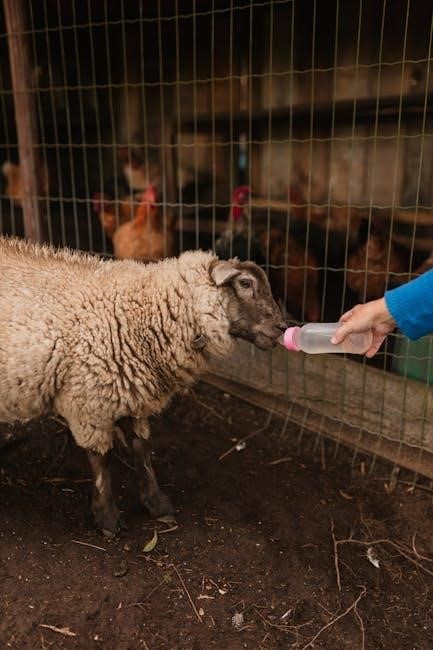
The animals, driven by Old Major’s vision, rise up against Mr. Jones, who is overthrown in a swift rebellion. The farm is renamed Animal Farm, and the Seven Commandments are established to guide the new society. With the pigs assuming leadership, the animals work together to maintain the farm, seeking to create a self-sufficient and equal community. This pivotal moment marks the beginning of their experiment in governance and collective ownership, filled with hope and idealism.
3.4 The Rise of the Pigs and Their Corruption
Following the rebellion, the pigs, led by Napoleon and Snowball, gradually consolidate power. As time passes, they begin to abuse their authority, manipulating the Seven Commandments for personal gain. The pigs justify their actions by claiming they are working in the best interests of the farm, but their corruption becomes evident as they adopt human behaviors and privileges. This transformation marks the beginning of a descent into totalitarianism, mirroring the failures of the Russian Revolution.
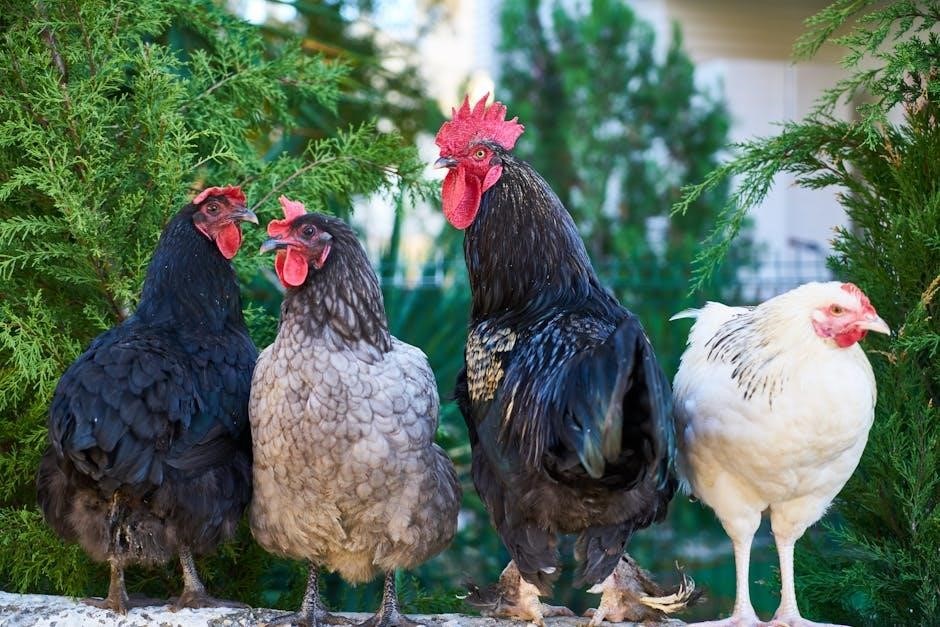
Themes in Animal Farm
Animal Farm explores themes of revolution, totalitarianism, and the corruption of power, serving as a cautionary tale about the dangers of unchecked authority and manipulation.
4.1 The Allegory of the Russian Revolution
Animal Farm serves as a powerful allegory for the Russian Revolution, with Old Major symbolizing Karl Marx and the Rebellion mirroring the Bolshevik uprising. Napoleon and Snowball represent Stalin and Trotsky, respectively, as they vie for power. The pigs’ gradual corruption and manipulation of the Seven Commandments reflect the Soviet leaders’ betrayal of revolutionary ideals. Orwell critiques the rise of authoritarianism and the erosion of equality, paralleling the Soviet Union’s decline into totalitarianism;
4.2 The Dangers of Totalitarianism
Animal Farm vividly portrays the dangers of totalitarianism through the pigs’ gradual seizure of power. Napoleon’s regime exemplifies authoritarian control, manipulating the Seven Commandments to justify exploitation. Squealer’s propaganda distorts reality, ensuring compliance and crushing dissent. Orwell critiques how totalitarian leaders exploit fear and ignorance to maintain power, eroding individual freedoms and fostering a culture of mistrust. The novel serves as a warning against the oppressive nature of unchecked authority and its impact on society.
4.3 The Corruption of Power
Animal Farm highlights how power corrupts even those with noble intentions. The pigs, initially united in their rebellion, gradually abuse their authority for personal gain. Napoleon and Snowball’s rivalry escalates into a struggle for dominance, with Napoleon seizing control and exploiting resources. The pigs’ transformation mirrors human tendencies, as they justify their corruption by rewriting the Seven Commandments. Orwell illustrates how unchecked power leads to moral decay, undermining the original principles of equality and justice that fueled the animals’ rebellion.

Symbols in the Novel
Animal Farm is rich in symbolism, with the barn representing unity, the Seven Commandments embodying moral principles, and the flag symbolizing the pigs’ corrupted ideals. These elements convey Orwell’s critique of power and manipulation, highlighting how symbols can be altered to serve those in control, reflecting the novel’s themes of corruption and the erosion of original ideals.
5.1 The Barn as a Symbol of Unity
The barn in Animal Farm serves as a powerful symbol of unity and collective purpose. It is where Old Major delivers his inspiring speech, sparking the rebellion. The barn becomes the central meeting place, fostering a sense of community among the animals; Over time, however, it transforms into a tool of propaganda, with the pigs manipulating its significance to maintain control. This shift highlights the tension between unity and manipulation, as the barn evolves from a space of shared ideals to one of imposed authority, reflecting the broader themes of the novel.
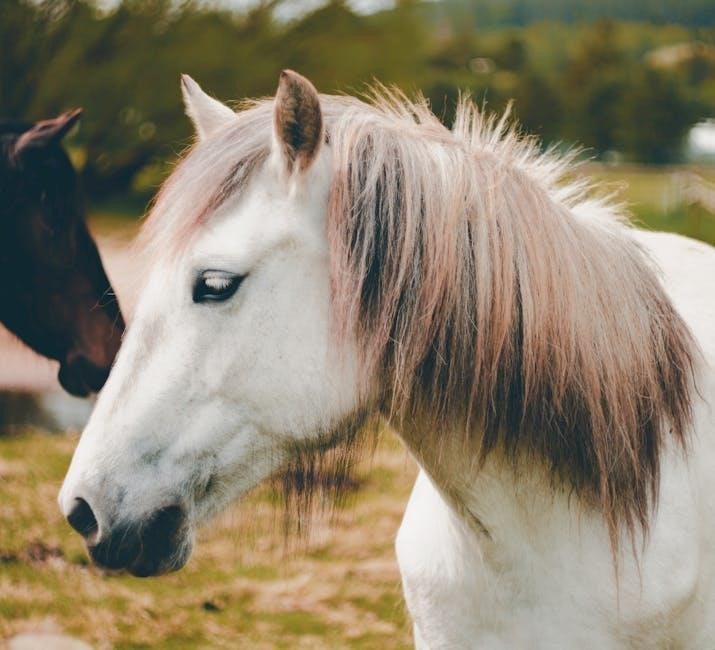
5.2 The Seven Commandments and Their Significance
The Seven Commandments, painted on the barn wall, serve as the moral framework for the animals’ new society. They emphasize equality, cooperation, and the rejection of human traits. Initially, these rules unite the animals and guide their actions. However, as the pigs gain power, the commandments are subtly altered to justify their corruption, such as changing “No animal shall drink alcohol” to “No animal shall drink alcohol to excess.” This manipulation highlights the pigs’ growing authoritarianism and the erosion of the original ideals, reflecting Orwell’s critique of power abuse and the distortion of revolutionary principles.
5.3 The Flag and Its Transformation
The flag, designed by the pigs, features a horn and hoof on a green background, symbolizing the animals’ unity and rebellion against humans. Initially, it represents hope and solidarity. However, as the pigs consolidate power, the flag’s significance evolves. Its design remains unchanged, but its meaning shifts to justify the pigs’ dominance. This transformation mirrors the corruption of the revolution’s ideals, as the flag becomes a tool of propaganda, reinforcing Napoleon’s authority and the pigs’ divergence from the original principles of equality and freedom.
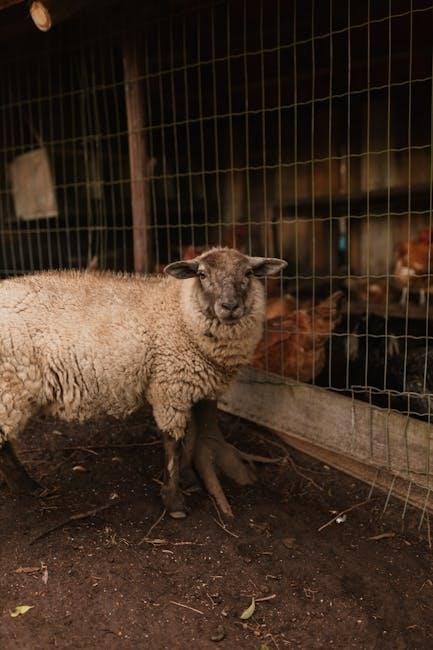
Character Analysis
The novel’s characters, like Napoleon, Snowball, and Boxer, symbolize different political and social roles. Napoleon represents authoritarian leadership, while Boxer embodies loyalty and exploitation of the working class.
6.1 Napoleon and Snowball: A Comparison
Napoleon and Snowball, two pigs in Animal Farm, symbolize contrasting political ideologies. Napoleon, cunning and power-hungry, represents Stalin’s authoritarianism, while Snowball, idealistic and visionary, mirrors Trotsky’s intellectual leadership. Their rivalry and eventual conflict highlight the struggle for control and the corruption of ideals. Napoleon’s manipulation and Snowball’s expulsion underscore the dangers of totalitarianism, as depicted in Orwell’s allegory of the Russian Revolution.
6.2 The Role of Boxer and His Loyalty
Boxer, a hardworking and dedicated horse, embodies unwavering loyalty to the farm and its ideals. His strength and commitment are exploited by the pigs, who manipulate his devotion for their benefit. Despite his physical and mental exhaustion, Boxer remains faithful, believing in the cause until his tragic end. His story highlights the consequences of blind loyalty and the exploitation of the working class, serving as a poignant reminder of the novel’s themes of power and corruption.
6.3 The Representation of Humans in the Novel
In Animal Farm, humans are portrayed as oppressive and corrupt figures, symbolizing the exploitation of power. Mr. Jones, the farm’s original owner, represents neglectful authority, while neighboring farmers embody external threats. The pigs’ gradual adoption of human traits and behaviors underscores the novel’s critique of totalitarianism and the dangers of mimicking oppressive systems. Orwell uses humans to highlight the corruption and abuse of power, serving as a cautionary tale about the cyclical nature of oppression and the loss of idealistic principles. The animals’ struggle against human tyranny drives the narrative’s central conflict.
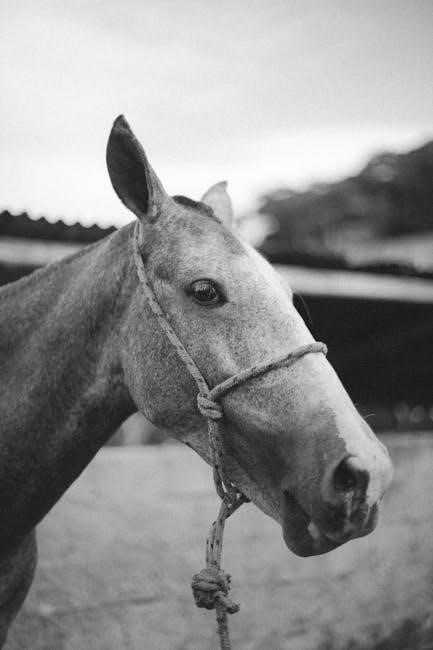
Legacy and Impact
Animal Farm remains a literary classic, widely studied for its timeless themes and political allegory. Its availability in PDF format ensures accessibility, making it a enduring educational resource globally.
7.1 The Novel’s Reception and Popularity
Animal Farm has garnered widespread acclaim since its publication, with its themes of rebellion and totalitarianism resonating globally. Its availability in PDF format has further boosted its popularity, allowing readers to access the story effortlessly. The novel’s timeless relevance and universal themes have made it a staple in educational curricula worldwide, ensuring its enduring popularity and continued discussion among scholars and readers alike.
7.2 Adaptations and Interpretations
Animal Farm has inspired various adaptations, including films, stage plays, and even video games, broadening its reach. PDF summaries and audiobook versions enhance accessibility, while educational resources provide deeper insights. The story’s allegorical nature has led to interpretations in different media, ensuring its relevance across generations and formats. These adaptations highlight the novel’s timeless themes, making it a versatile and enduring work of literature.
7.3 The Availability of Animal Farm in PDF Format
Animal Farm is widely available in PDF format, enabling easy access for readers worldwide. Platforms like LitRes and royallib.com offer free downloads in various formats, including PDF, epub, and fb2. Additionally, summaries and analyses in PDF form provide concise overviews of the novel’s plot and themes. Audiobook versions and educational resources further enhance accessibility, making Orwell’s timeless allegory accessible to a broad audience for study and enjoyment.